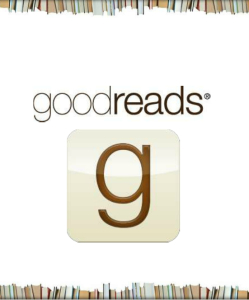 So the interesting thing that I learned, from Goodreads and the afterword, is that it is, in fact, a translation. The author is Dutch, and the original version was published and set in the Netherlands. There was a translator, but the author polished the final version and wrote a new ending in English, in which he is fluent.
So the interesting thing that I learned, from Goodreads and the afterword, is that it is, in fact, a translation. The author is Dutch, and the original version was published and set in the Netherlands. There was a translator, but the author polished the final version and wrote a new ending in English, in which he is fluent.Now, I had thought before I started reading that it was Dutch, but when it took place in upstate NY, I assumed I was wrong. So this clarifies things. There's a good amount of local geography--someone did their research--but there is a decent amount of clunkiness here, and I'm wondering now how much of that is the translation and how much is my opinion of the writing.
I said before that the writing was okay--I think I was wrong about that. There are just a few too many places where I couldn't picture what was happening, or places where characters spoke in what was really narrator-speak. Example: I spent two pages trying to figure out what an "A-frame swing" might look like before I realized he meant an A-frame swingset, at which point I got it.
Also, try saying this sentence out loud as though you really needed to communicate the idea to another person: "What about our loved ones who were out of town?" (I have never called my loved ones my loved ones out loud, especially not in a moment of panic.) "She's as terrified with Katherine as she was obsessed." (Aside from the misuse of "with" to go with "terrified," that is not how anyone talks extemporaneously; the reversed sentence structure is a rhetorical flourish you primarily see in written text.) And what teenager thinks of seeing/making out with/doing it with his girlfriend as "kindling renewed passions," even in the narration in his head?
Other weird things that threw me out of the writing: people mention being Americans all the time. The third person omniscient narrator switches from using characters' first names to the "Mr. Hampton" construction at weird moments. A high school student is allowed to have his girlfriend sleep over with barely a passing mention. Someone makes "druidic gestures."
But okay, that's the writing, possibly the translation. At the core of the book, though, I have a couple of pivotal problems. One is, as I mentioned in my other post, the weird thing with women. When the townsfolk (oh, there are SO MANY townsfolk in this book--they are referred to collectively and very frequently) start having weird visions, a LOT of them are about things like a woman being sexually attacked by an animal, or a big pile of children strapped together in the shape of a breast (yeah, that one makes NO MORE SENSE in the book than it does here), or a local woman's naked, flaccid flesh. There are all kinds of moments where a husband and wife go through something, and the husband is presumed to be the actor (should he speak up? should he do something?) while the wife encourages or discourage or is proud of or disparages him.
There are so many examples of this. But the weird foreignness of the women is really just related to the weird foreignness of everyone's internal life here. The townsfolk problem isn't just about the overuse of the word. You know in books like The Stand and 'Salem's Lot, where Stephen King takes these long moments to give you a glimpse into the life of a character who will never appear again? Like, the world is falling apart, and here is Mrs. Humphrey in her kitchen deciding whether to hide in the basement or join the mob running past her house. Here is Bammy (ugh, that name) finding her new hometown on fire. Those are to humanize people who are doing inhuman things, to show you enough of their internal life to understand that even when they're behaving like sheep, they still exist, these people, as individuals.
None of that here. Townsfolk act like idiots, vote for whatever their benevolent dictators tell them to, join a mob, gossip, whatever--and they do it as a group, with no individual thought. They're sheeple.
 |
| (xkcd) |
And the worst part is, that's kind of the point of the book. Like, both that they're not acting rational and the fact that they're accountable for it. It's hard to explain without giving the whole thing away, but basically the direction the story takes leaves this omission of agency to be not just a frustrating lack of style but a big hole where the emotional center of the book is supposed to be.
Finally, I'll tell you one thing that I thought was pretty interesting about the premise that was never really explored at all until in the end it was supposed to seem important: the people in Black Spring have two separate problems: the witch (who is creepy, and whom evidence suggests is dangerous if not properly managed) and the oppressive, dictatorial, quasi-religious local government that has sprung up to manage the situation. Even though the story revolves around people who push the edges of the Emergency Decree rules (don't interfere with the witch; don't tell Outsiders anything), no one in the book seems to notice this at any point at all.
Part of me wants to go on; the rest of me wants to go to bed. Sold.







